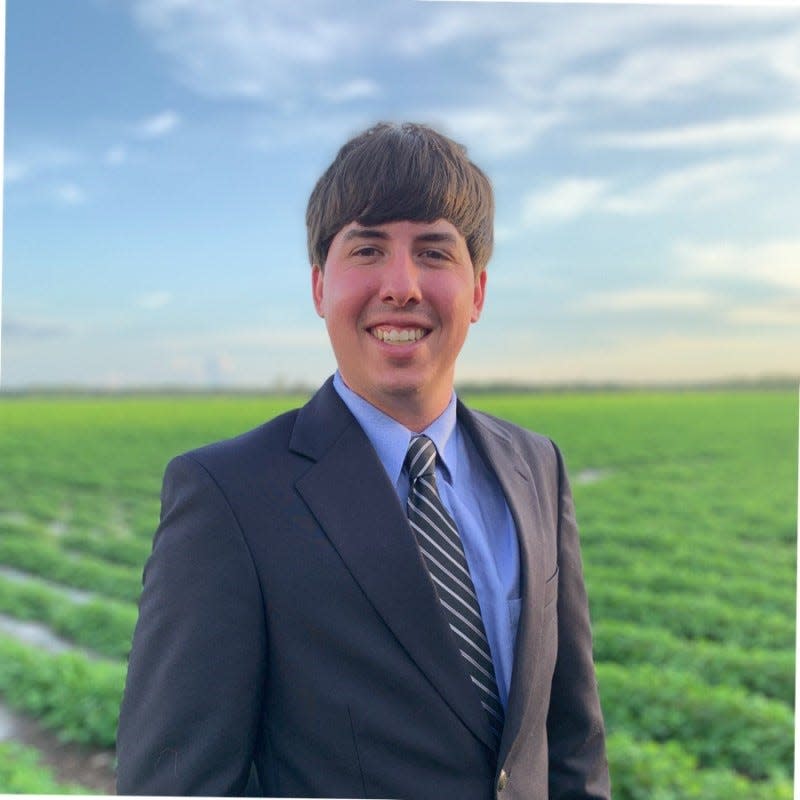How we plan to use cow manure to create renewable natural gas
My great-great-grandfather, a cheesemaker from Switzerland, migrated to the United States and earned a living by milking cows. I’m proud to carry on his tradition as a fifth-generation dairy farmer. I work with my father and mother at Full Circle Dairy, where we milk, capture, and distribute more than 40,000 gallons of high-quality milk each day from the 3,500 cows on our farm. But soon, we’re going to produce more than milk. We’re going to create renewable natural gas (RNG).
Earlier this year, we broke ground on a new facility at Full Circle Dairy that will use the manure from our cows to create RNG that can power Florida homes and businesses.
At Full Circle Dairy, we pride ourselves on the stewardship of our resources. That’s why we’re always working to incorporate new technologies to better care for our cows, the land and the team that supports our operation. Our new RNG facility is just another way we’re working to steward Florida’s environment and add value to Florida families.
Organic matter, such as cow manure, emits methane, or carbon, as it decomposes. The RNG facility will capture the methane, preventing it from entering our atmosphere, and create clean energy that can be stored, distributed, and used to power vehicles or appliances.
Our RNG facility will produce 100,000 average dekatherms of RNG each year. The project, which is expected to commence in 2024, is estimated to capture and redirect approximately 1,116 metric tons of methane per year, which is equivalent to 27,900 metric tons of carbon dioxide. That’s the same level of carbon reduction as removing 6,012 gasoline-powered passenger vehicles from Florida roads for an entire year.
RNG is a safe and clean source of energy that is fully compatible with traditional natural gas. RNG can be distributed efficiently through existing pipeline infrastructure and delivered directly to Florida homes and businesses. What’s more, RNG is produced domestically, which means Floridians can depend less on foreign countries that are hostile to America and don’t practice America’s stringent environmental standards for energy needs. With RNG, our state’s fuel diversity is strengthened, and the reliability of Florida’s energy supply is bolstered.
I first learned about RNG over a decade ago. At the time, RNG facilities were few and far between due to the high costs associated with implementing the technologies. As technology has improved and efficiencies were gained, RNG production has come within reach for dairies like mine. But there is still more work we can do to break down the barriers and burdens and accelerate the production of RNG.
Florida lawmakers have proposed a measure this legislative session that will provide a sales tax exemption for equipment used for the production, storage, transportation, compression or blending of RNG, this will help RNG production by helping reduce some of the upfront costs associated with converting organic matter into RNG.
There is a lot of potential for RNG in Florida over the coming years. With the help of the Florida Legislature, I hope to see more companies across Florida implementing RNG technologies.
Support RNG by reaching out to your state representative and state senator to tell them to vote in support of renewable natural gas.

Philip Watts is a fifth-generation dairy farmer and the Head of Feed Management and Cow Comfort at Full Circle Dairy located in Lee, Florida.
JOIN THE CONVERSATION
Send letters to the editor (up to 200 words) or Your Turn columns (about 500 words) to letters@tallahassee.com. Please include your address for verification purposes only, and if you send a Your Turn, also include a photo and 1-2 line bio of yourself. You can also submit anonymous Zing!s at Tallahassee.com/Zing. Submissions are published on a space-available basis. All submissions may be edited for content, clarity and length, and may also be published by any part of the USA TODAY NETWORK.
This article originally appeared on Tallahassee Democrat: How we plan to use cow manure to create renewable natural gas

